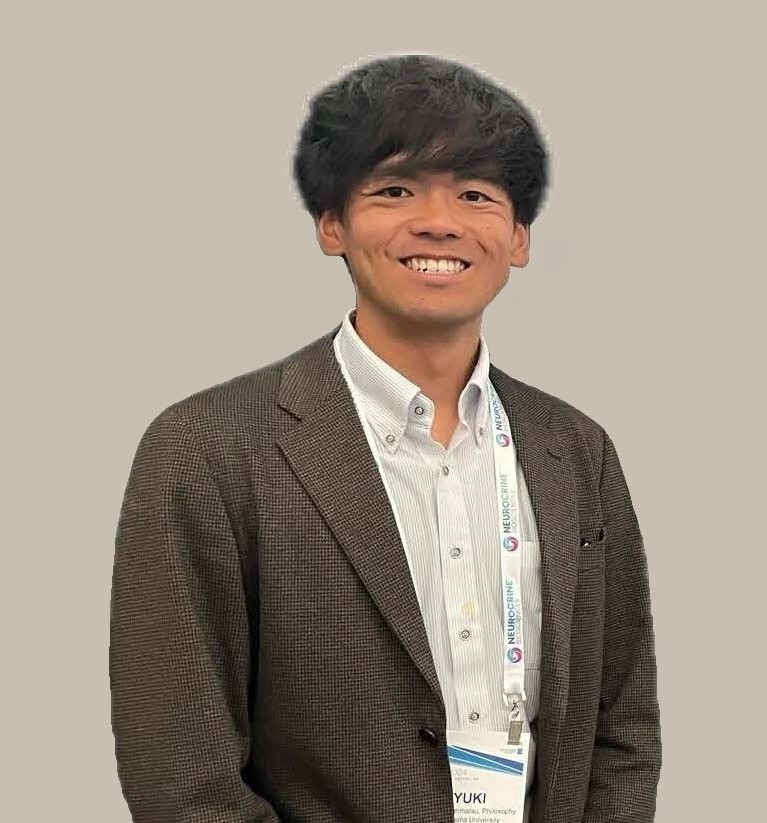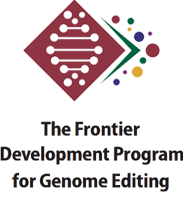 Doctoral Program for World-leading Innovative & Smart Education
Doctoral Program for World-leading Innovative & Smart Education
Alumni Voices
Researcher of genome editing-based therapies and drug discovery
 |
Overcoming My Weaknesses and Pioneering New Frontiers in Human Health with Genome Editing Technology |
|
NARIMATSU Yuki Affiliation: Halicioğlu Data Science Institute (University of California, USA) / Graduate School of Integrated Sciences for Life |
|
|
Life Science Course / Doctoral Course, Graduate School of Integrated Sciences for Life Completion in 2023 |
<Work Experience>
| Organization/ Role | Job Description |
|---|---|
|
Specially Appointed Assistant Professor, Graduate School of Integrated Sciences for Life, Hiroshima University |
10/2023 - Present Elucidation of the central regulatory mechanism of fat accumulation via novel neuropeptide |
| Visiting Scholar, University of California, San Diego,Halicioğlu Data Science Institute |
04/2024 - Present Elucidation of human genomic regions associated with obesity during pregnancy and the development of metabolic diseases |
― What motivated you to join the Frontier Development Program for Genome Editing?
With the rapid advancement of genome editing technology, I recognized its potential in my research. However, I also felt challenged by this technology which made me want to gain specialized knowledge to master it. In addition, since beginning my career as a researcher, I have aspired to contribute to human health and have been interested in the process of translating basic research into societal applications. These motivations led me to join this program.
― What did you learn from the internship?
During my internship at the National Institute for Physiological Sciences, I received training in analysis techniques for metabolic regulation using genetically modified mice from Professor MINOKOSHI Yasuhiko (currently a professor at Sugiyama Jogakuen University) and Assistant Professor KONDOH Kunio (currently an associate professor at Tottori University). It was a valuable experience for me; I had the opportunity not only to discuss research but also to observe the most advanced experimental techniques and receive feedback on my experiments from leading researchers in the field. This helped me build my skill and also my confidence in using cutting-edge techniques.
― How are you utilizing what you learned in the program?
Before enrolling in this program, I felt I was not very proficient in dry analysis, which involves using computational tools to analyze biological data. However, through hands-on training and repeated trial and error in the bioinformatics lectures, I was able to overcome this challenge. Currently, I am engaged in dry lab research at the University of California, San Diego, USA, with a focus on identifying genomic regions associated with human diseases and time-series biological information (such as body temperature and heart rate).
― Please tell us about the career path you envisioned as a student and your current career.
- Career path you envisioned as a student : A basic researcher with expertise in wet analysis, contributing to addressing unsolved questions related to obesity and lifestyle-related diseases.
- Current career (including future goals) : A basic researcher, aiming to contribute to a wide range of human health issues, but expanding my reach by integrating both dry- and wet-lab research methodologies.
Until I earned my doctorate, my primary focus was wet analysis (the analysis of biological samples from animals and cells). However, through the lectures mentioned above, I became fascinated with the excitement and great potential of dry analysis. As I continued my academic career as a basic researcher, I reflected on how I could contribute more broadly to human health. I realized that the best way to achieve this would be to pursue a “dry and wet dual-stream” approach. This realization led me to choose my current career path.
― What advice would you give to younger students?
Through this program, I have come to feel that “by continuously challenging myself to overcome my weakness, a whole new world has opened up for me.” Recent technological advances in life science research, such as genome editing, AI, and organoids, have remarkable potential to advance research. At times, you may find it difficult to keep up with their rapid pace of development and might start to struggle. However, why not challenge yourself just a little in areas where you feel less confident? I believe that as long as you keep challenging yourself, your possibilities are infinite.
*The information here is as of January 2025.
